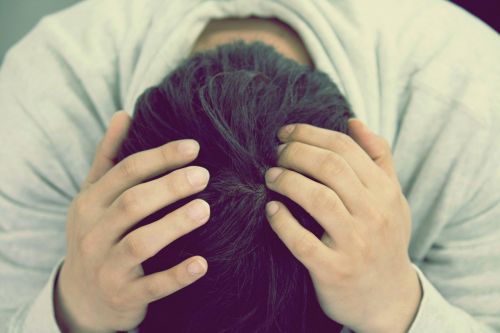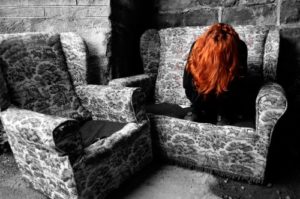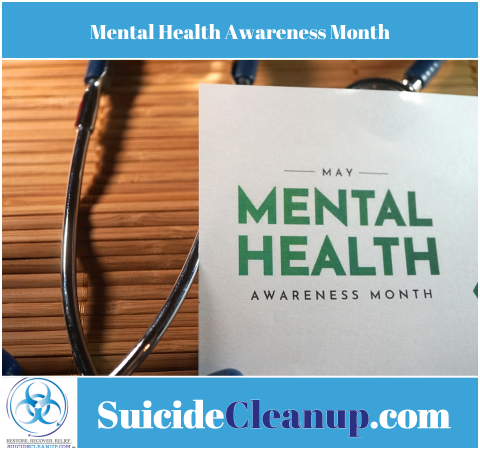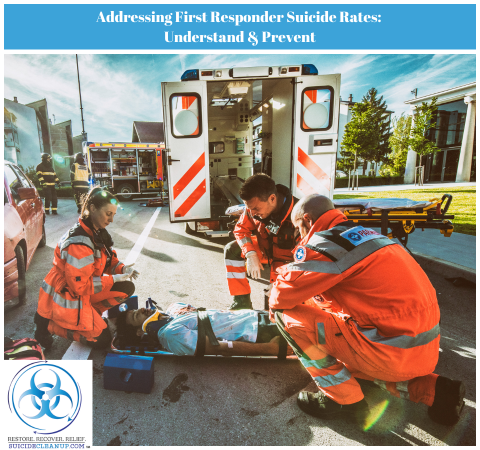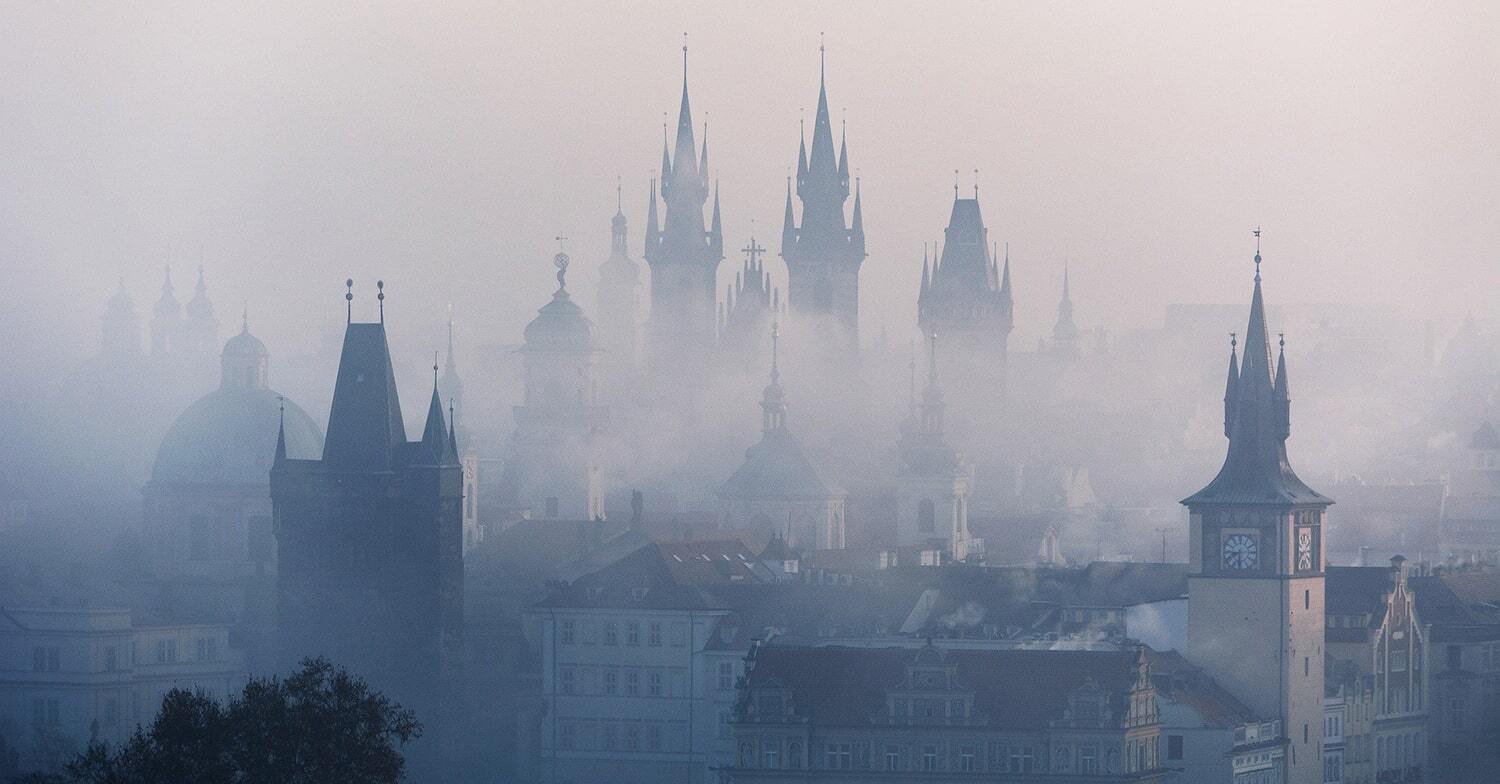
The Most Astonishing Mass Cult Suicides
October 27, 2021
Grief During the Holidays
December 15, 2021The short answer is yes: Discovering a dead body, regardless of its condition, can lead to PTSD and other psychological harm.
The official diagnostic criteria for PTSD is somewhat complicated, and only a professional psychologist can diagnose a person with this disorder. But the National Alliance for Mental Illness (NAMI) explains PTSD symptoms and treatments in easy-to-understand terms. What you need to know now is that exposure to trauma—even if you weren’t the direct victim—can cause long-term symptoms, such as these:
- “Fight or flight” response
- Depression
- Predisposition to being easily startled
- Avoidance of potential triggers, or unrealistic expectations of dangers
- Irritability
- Cognitive issues
- Derealization, or feeling removed from one’s own body
- Re-experiencing, in which the trauma is vividly replayed in the mind
How about those who don’t meet the criteria for PTSD? An official diagnosis isn’t necessary to validate the emotional distress associated with trauma. And that trauma doesn’t have to involve a car accident, wartime tour of duty, or a violent assault. Discovering a loved one who has passed away, either from a violent suicide or even as a result of a long illness, can negatively impact one’s mental well-being.
How discovering a body can cause PTSD or other serious psychological problems
Discovering a deceased loved one, regardless of the condition of their body, is possibly one of life’s most stressful and traumatic experiences. Here are some of the ways manner of death can cause long-term distress:
Traumatic Death
Deaths by gunshot, blunt force trauma, stabbings, and sometimes falls subject a loved one to the sights and smells of fluids, tissues, and shockingly damaged bodies. The trauma scene might be widespread, further overwhelming the viewer’s senses.
Strangulation
Strangulation and suffocation deaths, even when very recent, can cause extreme skin discoloration, distorted facial features, and obvious neck injuries. On the other hand, the appearance of a loved one who has succumbed to a suicide by hanging or homicidal strangulation might be so “normal” that the interloper tries to save the victim, and blames themselves when they’re unsuccessful.
Drug overdose
Those who ingest fatal doses of oral or injected drugs are even more likely to appear like they’re sleeping, aside from the likely presence of vomit. But the sudden realization that something is very, very wrong can make the finder more susceptible to panic when they encounter a soundly-sleeping partner, child, co-worker, or loved one.
Advanced decomposition
Depending on time, weather, and location, a body may have reached a level of decay that makes the victim almost unrecognizable, but understanding who that body belonged to—and reconciling its appearance with how we want to remember the person we lost—is nearly always a struggle.
The smell
You might not think the smell alone is grounds for trauma, but trust us, as cleaners we know all too well. We hope you never smell it, it is something that biologically stays with you for days, but sticks with you mentally forever.
No death scene is necessarily better to witness
It’s not fair to judge one type of death scene as more traumatic than the other. Each of us has our own capacity for resilience in the face of trauma—and that’s certainly not the same as “blocking it out”. Resilience is our ability to confront, process, and recover from trauma and extreme stress; it’s rare for an individual to be resilient without support.
How to get help when you’ve discovered a loved one’s body
You might feel alone and confused after discovering a loved one who has completed suicide, been the victim of a homicide, or even died of natural causes but there’s hope. NAMI emphasizes an important fact: “Adults and children who have PTSD represent a relatively small portion of those who have been exposed to trauma.” A strong support network and early access to psychiatric care may reduce the likelihood of a PTSD diagnosis. Self-care is essential to all friends and family who have lost loved ones, and it’s easier to access than you might think.
Engaging suicide aftermath cleanup professionals can help minimize triggers while restoring the environment to safety.
Mental health resources
Check with your health insurance provider to learn what mental health benefits are available to you, but be prepared—it may take weeks to get an appointment with a licensed psychologist. In the meantime, the National Alliance on Mental Illness (NAMI) or organizations dedicated to helping loved ones left behind after a suicide can connect you with emergency mental health services and local support groups.
Independent telehealth therapy organizations such as BetterHelp Counseling and Talkspace can connect you with trauma specialists, often much sooner than you’ll be able to sit down with a local mental health professional.
Finally—or perhaps first—contact your primary care physician, who might be able to help you expedite your wait for a clinical psychologist, psychiatrist, or psychiatric nurse practitioner. If you don’t have either, we have resources available to help you find a mental therapist near you and advise you on what to look for when choosing one.
Victim’s services
Many counties and cities offer publicly-funded services for trauma and crime survivors, and you may qualify for aid. A good place to start is Victim Connect Resource Center which can direct you to the local and national resources you need. Your therapist should also be able to point you to local mental wellness services.
Professional suicide cleanup
The more time you spend at the scene of a death, the more likely you are to re-experience the unpleasant aftermath in your imagination. Forcing yourself to clean up after a dead body can itself be traumatic, especially if first responders or the coroner left behind body tissue; they often do, as their responsibility is caring for the victim, not cleaning up afterwards.
We are professionals whom specialize in cleaning up homes, offices, and even vehicles that are contaminated by blood, bodily fluids, and decomposition. While many loved ones feel it’s up to them to confront this difficult and complicated task, doing so can lead to further trauma.
Property or auto insurance insurance usually covers the cost of professional cleanups, as these services preserve value and biohazard contamination is, technically damage. Improper cleanup can lead to permanent stains and pervasive odors.
You Deserve to Look After Yourself
Post-trauma stress, whether an officially-diagnosed disorder or the natural result of exposure to a dead body, entitles you to seek the help you deserve. We hope the resources above help you find that support… and we hope that if you need assistance restoring a property to pre-trauma conditions, you’ll contact us as soon as possible.

